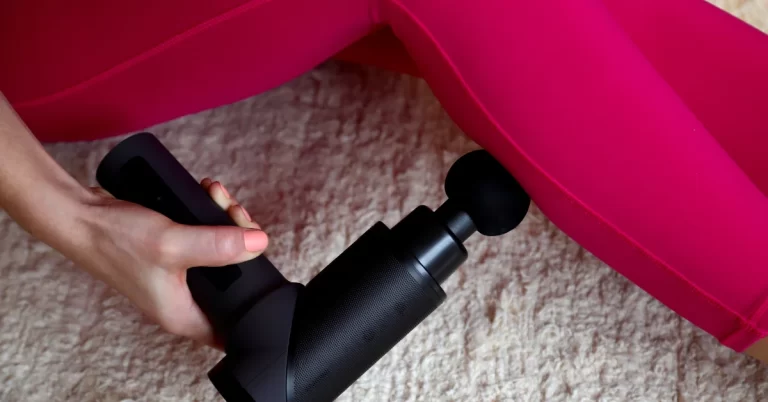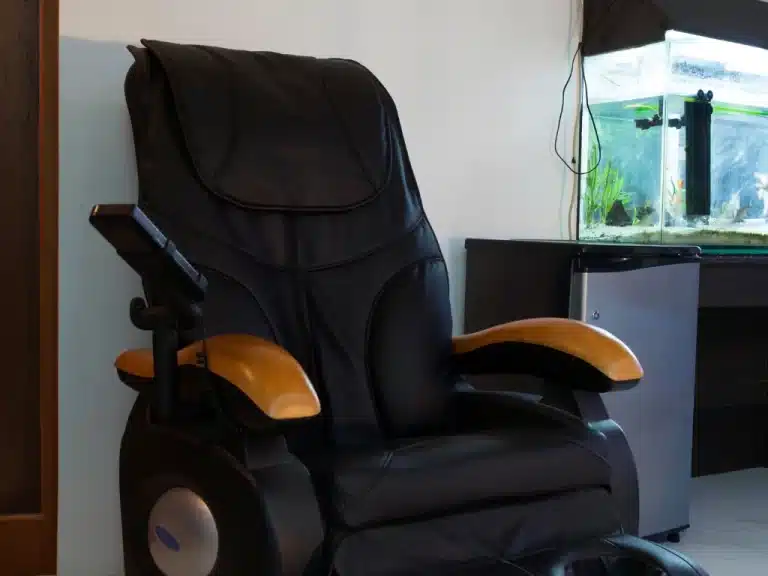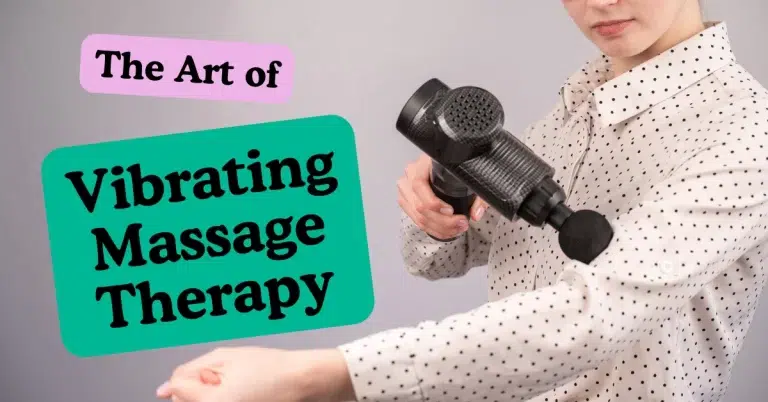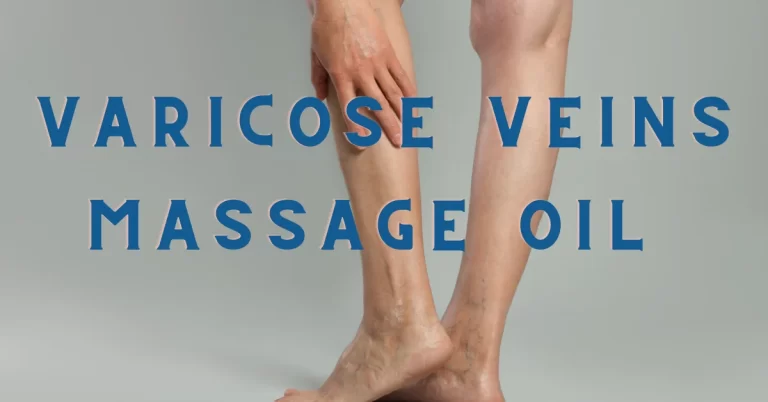Guide to Knee Pain Relief: Strategies, Tips, and Treatments
Are you suffering from knee pain? Learn how to relieve your discomfort with these easy-to-follow, practical tips. Get natural knee pain relief today.
One might experience knee pain for multiple reasons, such as injury, arthritis, or overuse. There are some things you can do to relieve knee pain, including:
- Rest. This is especially important if your knee pain is caused by an injury. Avoid activities aggravating your pain, and give your knee time to heal.
- Ice. Applying ice to your knee for 20 minutes can help reduce swelling and inflammation.
- Compression. Wearing a compression band or sleeve can support your knee and reduce swelling.
- Elevation. Elevating your leg above your heart’s level can help reduce swelling.
- Over-the-counter pain relievers. Nonsteroidal anti-inflammatory drugs (NSAIDs) like ibuprofen (Advil, Motrin IB) and naproxen (Aleve) can reduce pain and inflammation.
- Physical therapy. Physical therapy improves knee function and reduces pain through muscle strengthening and range of motion exercises.
If your knee pain is severe or does not improve with home remedies, you may need to see a doctor. They may prescribe stronger medications, such as prescription NSAIDs or corticosteroids. Surgery may sometimes be necessary to repair damaged tissue or correct a deformity.
Tips for knee pain relief:
- Lose weight. If you are overweight or obese, losing weight can reduce stress on your knees.
- Exercise regularly. Swimming and walking can strengthen knees and improve flexibility. Avoid high-impact activities if they cause pain.
- Wear supportive shoes. Properly fitting shoes with good support can reduce knee stress and prevent injuries.
- Use a cane or walker. Using a cane or walker can assist with knee pain and walking difficulty.
Talk to your doctor if you have any questions or concerns about your knee pain.
Causes of Knee Pain
Various factors, including injury, overuse, and degenerative conditions, can cause knee pain. Some of the most common causes of knee pain include:
- Injuries: Knee injuries are a common cause of knee pain. These injuries can include ligament tears, meniscus tears, and fractures.
- Overuse: Overuse of the knee joint can also lead to knee pain. This is often seen in athletes and individuals who engage in repetitive activities like running or cycling.
- Arthritis: Arthritis is a degenerative condition that can cause knee pain. There are several types of arthritis, including osteoarthritis, rheumatoid arthritis, and gout.
Types of Knee Pain
Knee pain can manifest in several ways, depending on the underlying cause. Some of the most common types of knee pain include:
- Acute pain: Acute knee pain is often caused by an injury, such as a ligament tear or fracture.
- Chronic pain: Chronic knee pain is typically caused by degenerative conditions like arthritis.
- Sharp pain: Sharp knee pain can signify a more severe injury, such as a ligament tear.
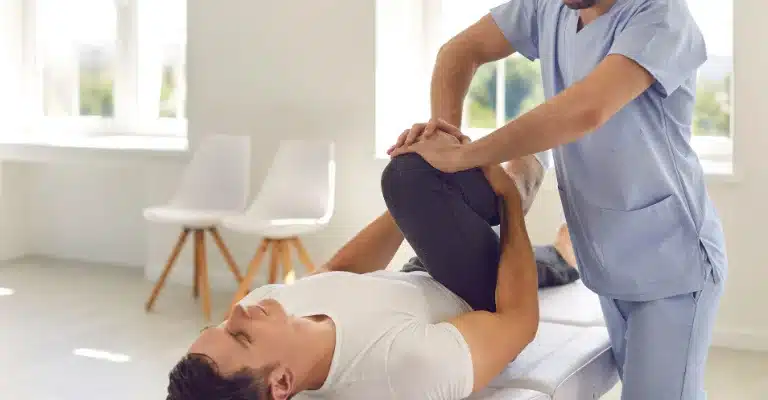
Managing Knee Pain
There are several ways to manage knee pain, depending on the underlying cause. Some of the most effective ways to manage knee pain include:
- Rest: Resting the knee joint can help reduce pain and inflammation. This is especially important in cases of acute knee pain.
- Ice and heat therapy: Applying ice and heat to the knee joint can help reduce pain and inflammation.
- Physical therapy: Physical therapy can help strengthen the muscles around the knee joint and improve the range of motion.
- Medication: Over-the-counter pain relievers, such as ibuprofen, can help reduce knee pain.
For more about Knee massager.
Tips and treatments for Knee Pain Relief:
- Exercise regularly: Low-impact exercises such as walking, cycling, and swimming can help strengthen the muscles around the knee joint, reducing pain and improving mobility.
- Maintain a healthy weight: Excess weight can put added strain on the knee joint, leading to pain and discomfort. Maintaining a healthy weight can help reduce this strain.
- Use proper form during physical activity: Whether it’s running, jumping, or lifting weights, using the proper form can help reduce the risk of knee injury and pain.
- Wear proper footwear: Wearing shoes with good arch support and cushioning can help reduce the impact on the knee joint during physical activity.
- Apply ice and heat therapy: Alternating between ice packs and heat therapy can help reduce inflammation and relieve pain in the knee joint.
- Take over-the-counter pain relievers: Nonsteroidal anti-inflammatory drugs (NSAIDs) such as ibuprofen can help reduce pain and inflammation in the knee joint.
- Consider physical therapy: A physical therapist can develop a customized exercise plan to help improve strength and flexibility in the knee joint, reducing pain and improving mobility.
- Use knee braces or supports: Knee braces or supports can help stabilize the knee joint and reduce pain during physical activity.
- Explore alternative therapies: Acupuncture, massage therapy, and chiropractic care are alternative therapies that may help reduce knee pain in some individuals.
It’s important to consult with a healthcare professional before trying any new treatments or therapies for knee pain.
Final Words:
Knee pain can be a debilitating condition that affects many people. In this article, we’ve covered the causes of knee pain, the various types, and the best ways to manage knee pain. By following the tips outlined in this article, you can find relief from knee pain and improve your overall quality of life.
To access additional articles related to Hot Tub Patio or to read more posts related to this topic, please visit the Massages category.
Common Queries: (Knee Pain Relief)
Q. What are some common causes of knee pain? Various factors, including injury, overuse, and degenerative conditions such as arthritis, can cause knee pain.
Q. What are some practical ways to manage knee pain? Resting the knee joint, applying ice and heat therapy, physical therapy, and over-the-counter pain relievers are all effective ways to manage knee pain.
Q. When should I see a doctor for knee pain? You should see a doctor if your knee pain is severe, does not improve with rest and home remedies, or is accompanied by swelling or instability.
Q. Can knee pain be prevented? Maintaining a healthy weight, staying active with low-impact exercise, wearing proper footwear, and using good form during physical activity can help prevent knee pain.
Q. Are there any natural remedies for knee pain? Some natural remedies for knee pain include turmeric, ginger, and omega-3 supplements. However, cons essential for a healthcare professional before using any natural remedies is necessary.








